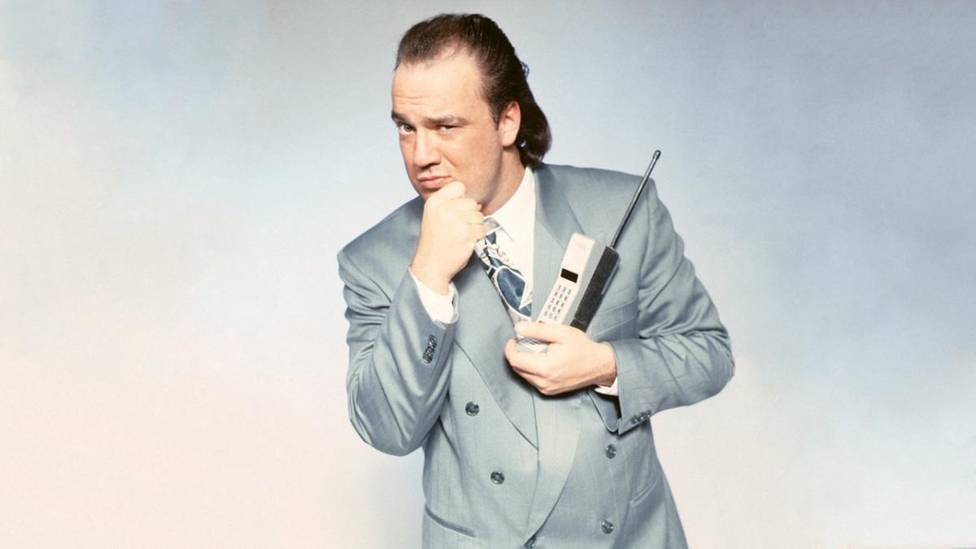Paul Heyman has made wrestling history, and not just as the manager of Roman Reigns and Brock Lesnar. Now he enters the WWE Hall of Fame
He is one of the most influential figures in recent wrestling history, both in front of and behind the camera. Now he is receiving the logical accolade from show match market leader WWE: Paul Heyman is the first member of the Hall of Fame class of 2024.
The 58-year-old, best known to younger fans as the rhetorically razor-sharp manager of the Bloodline around Roman Reigns and formerly Brock Lesnar, will enter the Hall of Fame on the eve of the WrestleMania 40 mega-show in April – in the place where he established his legendary reputation: in Philadelphia, the stronghold of the cult league he founded, ECW.
Heyman left his mark on the entire industry with his creation back then, just as he does today: as the mastermind behind the hugely successful Bloodline storyline and the rivalry between Champ Reigns and Cody Rhodes that culminated at WrestleMania, he has become the architect of a new WWE boom in recent years.
Paul Heyman with a great feel for trends
In a long career that began in WCW as manager “Paul E. Dangerously” (and even earlier behind the scenes as a photographer at early WWE events), Heyman has proven time and again that he has a keen sense for trends.
Heyman represented the coming of age of wrestling in the nineties. While the “Monday Night Wars” between the then WWF and rival WCW are regarded as the marriage of the industry, Heyman, as head and booker of the revolutionary ECW league, was the real catalyst for almost all the ideas with which the WWF eventually knocked WCW out of the field.
Even in later times, Heyman proved that he knew how to read the signs of the times, seeing exactly how the popularity of the real-life combat sports league UFC and the boom of high-quality independent wrestling after the turn of the millennium had to change WWE as well. Sooner than anyone else in WWE, he also became the big promoter of the newly returned CM Punk, who was the living embodiment of the development.
Sense for talents and their strengths
Heyman has also demonstrated many times in the past that he is an excellent “booker” – the creative mind behind matches and stories. His understanding of talent and his assessment of potential has always gone deeper than almost any other colleague in the industry. His sense of how to make wrestlers who at first glance seem to have little star potential relevant through new character ideas or certain tricks has a mythical character.
In ECW, he created a series of unforgettable characters from wrestlers who were barely recognized elsewhere: Raven, Taz, the Sandman, Rob Van Dam, Tommy Dreamer, Sabu, The Public Enemy, the Dudley Boyz and many others. Heyman recognized the strengths in all of them and brought them out, while hiding the weaknesses as best he could.
He helped others to blossom by giving them creative freedom instead of forcing them into completely scripted promos. Steve Austin and Mick Foley, among others, benefited from this in ECW before taking off in the WWF in unexpected ways. Heyman’s accomplishments in ECW in this regard are better remembered by most fans than his mistakes as a businessman: ECW ultimately went under because the league was no longer viable with over eight million dollars in debt.
WWE Hall of Fame should not be the end of the line
After the demise of ECW in 2001, Heyman endured a volatile relationship with WWE and the company’s founder Vince McMahon, who was disgraced that year and with whom he had a fractured relationship.
Heyman was appointed and dismissed by McMahon several times – in recent years the working relationship has stabilized, Heyman was given new freedom to lead the appearances of various top stars, in addition to Lesnar and Reigns, he was also heavily involved in the engagements of Bill Goldberg, Ronda Rousey and others
Since 2020, Heyman’s work has centered around the story of Reigns, the reigning champion for over three and a half years, and his mafia-like Bloodline clan, whose shadow man Heyman acts as. The story is a return to Heyman’s roots in more ways than one: Heyman was already the manager of Reigns’ cousins Fatu and Samu in the 1980s – his current role as the “Wise Man” is also a nod to the “Three Wise Men”, the three great manager idols from the old (W)WWF days: the “Grand Wizard” Ernie Roth, “Captain” Lou Albano and “Classy” Freddie Blassie.
For the now no less legendary Heyman, the Hall of Fame induction is an overdue reward on the one hand – on the other, it also seems to make him a little uncomfortable.
“I constantly have the feeling that I’m just getting started, that I’m only just beginning to really understand what I’m actually doing,” he comments on the recognition in an interview with the AP news agency: he still doesn’t feel like a museum piece, “my life’s work is not finished, I still want to achieve a lot. “





